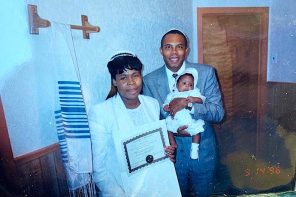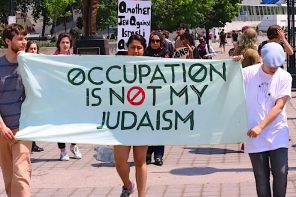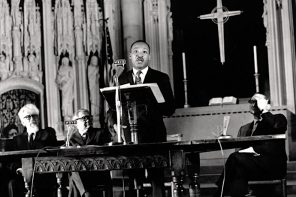The bombs may have been fake, but the hatred is real.
Robert Frost once said, “good fences make good neighbors.” Of course, good neighbors do not necessarily make a good community. The rise of the individual over the community means that whatever peace we achieve is always uneasy, as we await someone to break the peace in their own self-interest.
The Riverdale Synagogue tries to tear down the fences by offering its worship space to a young Muslimah. Unfortunately, too many others are still behind their fences. Four Muslim men stand accused of attempting to destroy this religious sanctuary. They do so because they are ignorant. They are ignorant of the hospitality the Center has shown to Muslims. They are ignorant of the Muslim tradition that houses of worship are sacrosanct and never to be molested. They are ignorant of the idea of community. They are ignorant of the pain and sorrow the events of 9/11 caused to this city, to this nation, to the world. They speak of looking to strike out and of hitting things. It is a nihilistic vision that does not seek to build community. Unfortunately, because it is so easy to destroy, we may already be paying a price for this plot.
The Riverside Synagogue bombs may not have exploded, but there are still casualties. There are Jewish casualties – Jews who have another reason to say that Muslims hate them so much they want to murder them while they are praying. There are Muslim casualties – American Muslims who love being Muslim and American and have another reason to fear that they will not be welcome or may be targeted in retaliation.
Reports say that the four suspects in the plot are angry about America’s actions in Afghanistan. They decided to bomb two synagogues in New York, since, according to one suspect, “the best target” — the World Trade Center — “was hit already.” The disturbing calculus of these men can only be understood in the context of hatred, ignorance, stereotypes, and bad theology.
The best antidote to this plot – and future plots like it – is more interfaith activity. We are not naïve enough to think that simply knowing folks across lines of faith will prevent violence. However, we have seen over and over again the transformative power of relationships across faith lines. The Riverdale Center opened their doors; Hassan Askari went to fight for what is right; Salman Hamdani ran towards what many of us would run from. They all build community.
Our generation has learned much about waging holy war. The way to wage holy war is to be religiously intolerant – to claim that my path to God is the only right path to God. When we claim that our path to God is the only path, we commit the sin of creating God in our own image rather than remembering that we were created in the image of God.
What we haven’t learned enough about from our religious traditions is waging holy peace. If some people of faith create problems by carrying out violence in the name of God, then other people of faith need to create solutions by patiently learning about each other, reducing ignorance and stereotypes, and working together on issues of common concern. That’s the path to holy peace. This holy peace is not the uneasy peace of neighbors, but the peace of the heart, that comes from knowing we are responsible for more than ourselves. In both Hebrew and Arabic, the word is shekinah/sakinah.
Hussein Rashid
Rabbi Justus Baird




